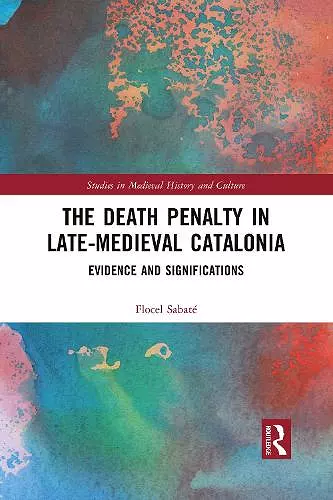The Death Penalty in Late-Medieval Catalonia
Evidence and Significations
Format:Paperback
Publisher:Taylor & Francis Ltd
Published:30th Jun '21
Currently unavailable, and unfortunately no date known when it will be back
This paperback is available in another edition too:
- Hardback£165.00(9780367188634)

The death penalty was unusual in medieval Europe until the twelfth century. From that moment on, it became a key instrument of rule in European society, and we can study it in the case of Catalonia through its rich and varied unpublished documentation. The death penalty was justified by Roman Law; accepted by Theology and Philosophy for the Common Good; and used by rulers as an instrument for social intimidation. The application of the death penalty followed a regular trial, and the status of the individual dictated the method of execution, reserving the fire for the worst crimes, as the Inquisition applied against the so-called heretics. The executions were public, and the authorities and the people shared the common goal of restoring the will of God which had been broken by the executed person. The death penalty took an important place in the core of the medieval mind: people included executions in the jokes and popular narratives while the gallows filled the landscape fitting the jurisdictional limits and, also, showing rotten corpses to assert that the best way to rule and order the society is by terror.
This book utilises previously unpublished archival sources to present a unique study on the death penalty in late Medieval Europe.
ISBN: 9781032089546
Dimensions: unknown
Weight: 453g
400 pages